HISTORY OF CHRISTIAN COUNTY KENTUCKY
by
charles
m. meacham
1930

BIOGRAPHICAL SKETCHES
-C-

His father, William Campbell (Dec. 12, 1755-Oct. 29, 1825)
and mother, Susana Pearce (April 10, 1764-March 13, 1852), lived at Campbellton,
Orange County, Virginia, and were neighbors of President Thomas Jefferson.
William Campbell served in the Revolution and is referred to as “Colonel.”
Several of their children were early settlers in Christian County. Brothers
and sisters of Captain John Campbell were:
Frederick Woodson, May 14, 1808—.
Elizabeth Watkins, August 16, 1786-February 23, 1787.
Mildred Pearce, February 15, 1792—.
Aria (Welch), December 12, 1796—.
William, January 29, 1798.
America, December 10, 1800—.
Eliza Francis, December 12, 1802—.
Catherine Hart (Wm. Dulaney), May 17, 1790—.
Susana (Chas. Graves), September 1, 1804—.
Virginia (Mrs. Leon H. Maury).
Captain John P. Campbell’s paternal grandfather was James
Campbell (1805), of Virginia, and his maternal grandmother was Sarah Merriweather
Pearce, the daughter of Mary Bushrod Merriweather. His uncles were named
James, Joseph and John; an aunt, Elizabeth (Gibbs) (April 21, 1852). Colonel
William Campbell had half brothers named Hugh and Wiley and half sisters
named Annie, Fannie, Nancy and Lucy.



JOHN PEARCE CAMPBELL, IV, born July 24, 1892, at the old Campbell home on Main Street in Hopkinsville. Married Sara Smith, of Paducah, in 1914. Their two. children are Laura Fowler and John. Enlisted in the army in 1918. Lives near Chicago.


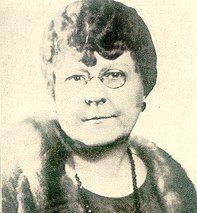
AN APPRECIATION
We sorrow for a bereaved community, we grieve for a leaderless society, for a husband whose heart is crushed; whose fire-side is desolate.
‘Tis a time for memories, memories of a life whose untiring energy was given for the up-building of her community; memories of a personality so strong that every life it touched was inspired and broadened by the associaton; memories of a faith that faltered not but, onward and upward until fruition was its reward; memories of a heart so tender that every call, every sorrow touched a responsive chord; memories of a home ruled and inspired by an influence so sympathetic, yet so wholesome that out from its sacred precincts there have come friends cheered and strengthened who never lost an opportunity to help some one—all unconscious of the inspiration she was to her church and to her associates.
Mrs. Cooper is gone, but she has reared for herself by acts of love, and deeds of charity, an enduring monument, Her life, her influence she leaves as a rich legacy to us who survive.
MRS. RICHARD LEAVELL, MRS. J. T. THOMAS, MRS. WALKER WOOD,
SR.,
Committee.

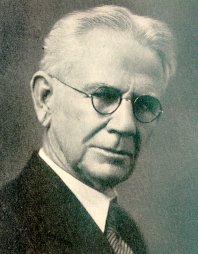
COL. ROBERT EMMETT COOPER was born in LaFayette, Ky., February 6, 1864. His father, Robert James Cooper, was a prominent citizen and merchant of LaFayette. His paternal grandfather was James Cooper, whose family came from Scotland. His grandmother, Jane Haskins, was of Irish descent. Both antecedents families migrated from North Carolina and Virginia to Kentucky in its early days.
His mother was the daughter of Major William Jones Ragsdale
and Emma Tillotson, both of their parents being residents of Virginia,
whose a’ntecedents came from England.
The subject of this sketch was the eldest of a family
of three sons, the others, William Davidson Cooper and James Garland Cooper,
and a daughter, Emma Jane Cooper (Mrs. Quint Elliott).
After attending the school of Hooker and Wilson, that had more than a local reputation as a place of instruction, before he was quite fifteen years old, conditions necessitated his stopping school and going to work in his father’s store, remaining in this service for eight years. However, on reaching his majority, he was made a member of his father’s firm under the name of R. J. and R. E. Cooper.
In July, 1887, he came to Hopkinsville and associated with his uncle, William E. Ragsdale, and established the tobacco warehouse firm of Rags-dale, Cooper & Co.
January 7, 1890, Mr. Cooper was married to Nellie Crider, the daughter of Jacob Ewing Crider and Alice Wyatt, of Fredonia, Caidwell County, Kentucky. Her father’s parents originated in Holland, settled in Lancaster County, Pennsylvania, in the early days, later moving to Kentucky, her mother’s parents being directly from England. Of this union a daughter wasborn, Alice Crider Cooper, that only lived two years.
Mrs. Cooper passed to her reward June 2, 1927, leaving a vacancy in the social and religious circles of this community, causing universal sorrowing—as she was held in high esteem on account of her genial, happy spirit and her intense earnestness in her church work that she loved so much.
The firm of Ragsdale, Cooper & Co. was recognized
as the active leaders in the establishing of the continued growth of the
Hopkinsville tobacco market; the firm name continued until the death of
Mr. Ragsdale in 1899, then was changed to R. E. Cooper & Co., and continued
in business until the fall of 1922. R. E. Cooper took an active and aggressive
interest in the campaign, establishing the Dark Tobacco Growers’ Co-operative
Association, and became the general manager, retiring from this position
at the end of three years. With the changing of the market conditions prior
to this, wherein was established the loose leaf selling of tobaccos, the
firm of R. E. and W. D. Cooper was established in 1908, and continued until
1922, when W. D.
Cooper became associated with the Dark Tobacco Growers’
Co-operative Association in the sales department, being district manager.
In addition to being head of his tobacco firms, he was president of the
Tobacco Board of Trade for a number of years and aided in the continued
development of the local market. However, as a young man, he was recognized
as being interested in the welfare of his community and state and became
an active and aggressive leader in civic, commercial, educational and church
work. Having served six years as a member of the City School Board, and
later became member of the Board of Regents of the Western Normal School,
of Bowling Green, Ky., serving twelve years; also taking an active interest
in the University of Kentucky; aiding in the development of the agricultural
interests of the state, being chairman of the Hopkinsyule Business Men’s
Association that established and employed the first farm agent in Christian
County.
He and his wife, being deprived of natural heirs, both
took an active interest in the education of a number of other children,
whom they cared for in their own home, sending them through the public
high school and later continuing their education to various colleges and
universities.
Being affiliated with the Methodist Church, he was chairman
of the Board of Stewards for seventeen consecutive years; served on the
Episcopate Committee of the General Conference in 1918; was the delegate
from the Louisville Conference to the Ecumenical Conference, London, England,
in 1921, and was elected by the unanimous vote of the College of Bishops
as a member of the Unification Board, undertaking to unite the Methodist
Episcopal Church and the Methodist Episcopal Church, South; also a member
of the Methodist Episcopal Church, South, General Hospital Board, 1924.
During the troublesome times of 1907, he was chairman of the Law Enforcement League and dared to make public addresses in the various counties in which the rioting was active, when only a few men dared, and the conditions being such that the governor thought it expedient to send troops and furnish a corporal’s guard of soldiers for the protection of his life and property during the campaign.
In 1918 he was chairman of the prohibition movement when Christian County became dry by an agreement without the holding of an election. It was through his negotiation that this was accomplished. He was vice-regional chairman of the Mammoth Cave National Park Association; also member of the Kentucky Progress Board of Commissioners.
He served as chairman of the Chamber of Commerce and of the Hopkinsville Foundation Fund for the development of the city and county. He has been identified with various commercial and industrial enterprises as the official head, continuing at present as president of the Christian-Todd Telephone Company; of the Grapevine Coal Company, in Hopkins County; of the Marion Flourspar Mining Company, in Crittenden County; vice-president of the Hopkinsville Clothing Manufacturing Company; director and member of the Finance Board of the Republic Life & Accident Insurance Company, Louisville, Ky.; member of the export tobacco firm of Bradley & Cooper, and a number of other enterprises.
Owing to the depression of the prices of agricultural products during the year of 1903-04, especially the values on leaf tobacco, R. E. Cooper became imbued with the idea that a direct tax being on leaf tobacco in its natural state was an unjust discrimination against this product, contending that it was a relic of the Civil War, the tax being imposed to raise a revenue, and tobacco at that time was produced in only the southern states.
Thereupon he issued a call to the tobacco growing sections and a bill was introduced by the Hon. A. 0. Stanley, Congressman, Second District of Kentucky, asking for the removal of this tax. Result of efforts being that the farmers were permitted to sell leaf tobacco in its natural state in a retail way to the consumer without payment of any tax.
Prior to United States entering the World War there had been established in Holland what was known as the Overseas Trust Company, being supervised by England, primarily to keep tab on all supplies and material entering Germany through Holland, which was a neutral nation. The Overseas Trust Company requiring visé on all shipments from the United States to foreign countries, finally resulting in said company’s blacklisting the ships carrying American tobaccos, notwithstanding the fact that tobacco had not been declared a contraband of war.
Early in the operations of the Overseas Trust Company, R. E. Cooper apprehended the probable interference of tobacco shipments, inasmuch as Java, a province of Holland, was a producer and large shipper of low grade tobaccos to continental Europe in competition with American grown products. He repeatedly called the attention of the Secretary of State to the impending danger and when the blacklist was set up, he, personally, appealed to all the tobacco markets of the various states to meet in Washington, wiring Senator Ollie James of his intended protest, asking to appear before the Foreign Relationship Committee of Congress. Having arranged for a joint session of the House and Senate Foreign Relationships Committee, thirty minutes’ time being allotted to each of the five principal tobacco growing states, R. E. Cooper was selected to open the presentation and each state in turn relinquished its time, consequently he spoke for more than two hours, resulting in the passage of an emergency bill through both houses and the signature of the President was affixed within three days from its introduction “for the bill authorizing the President to use the Army and Navy in the delivery of tobacco shipments originating in the United States to Germany.” The effect of this bill was that there was an immediate advance over the low, depressed prices on tobacco of two or three hundred per cent in increased values.
Patriotically, when our government entered the World War,
he volunteered his services and was appointed by Governor Stanley and served
as member of the State’s Council of Defense War Board, and was local chairman
of the government bond issue sales, devising a unique plan by which Christian
County went over the top of her quota of each succeeding bond issue.
The crowning event after the close of the war, when he
appeared before the Kentucky Legislature of 1928, succeeding in having
a resolution passed memorializing Congress to build and erect a national
monumental memorial boulevard to the United States soldiers and sailors
who died in the service, same to be in the nature of a war road, patterned
after the Appian Way, built by Claudius Appius more than two thousand years
ago, from Rome to the sea.
This boulevard, in accordance with the legislative resolution, in which the State of Kentucky was to provide the right-of-way, to be built of concrete or enduring construction, to be not less than 100 feet in width, beginning with the Lincoln Memorial in Larue County, passing through the
Mammoth Cave National Park Reservation to the Jefferson
Davis Monument terminating at Outwood, near Dawson Springs, Ky., where
the government has located at Veterans’ Hospital.
The length of the boulevard to be approximately 150 miles,
and the State of Kentucky agreed to furnish a plat or tract of land of
three acres (more or less), adjacent to and fronting along the boulevard,
alternating, and to deed same, through trustees to be appointed, to each
of the forty-eight states of the union, requesting that each of the states
would, through a special act of their legislature, build and erect a suitable
monument to their respective dead, thus making it in fact a monumental
boulevard to the greatest army in equipment and service of the World War;
and memorializing their achievements in connecting Lincoln Memorial, the
president of the Union, with the Jefferson Davis monument, the president
of the Confederacy, terminating with their grandsons, at the U. S. Veterans
Hospital, at Outwood, Ky.
Being imbued with patriotic and civic pride, although a life-long Democrat, Col. Cooper is so universally recognized and esteemed as an outstanding business man, that Gov. Flem D. Sampson, a Republican, appointed him as Colonel on his staff, at the beginning of his term, and also made him a member of the Kentucky Progress Commission.
Under his leadership, the First Methodist Church, one of the finest church buildings in Western Kentucky, was erected in 1917, a picture of which appears in this volume. He has been a loyal citizen in Hopkinsville, with firm faith in its future, and has wisely invested largely in real estate. His home on South Main Street being one of the handsomest residence properties in the city.



James 0. Cooper, in 1870, went to Cadiz and engaged in the hotel business until 1876, when he removed to Hopkinsville and opened the Cooper Hotel, that burned in 1882. He acquired the Phoenix Hotel, in 1878, and ran it until succeeded by his son, W. T. Cooper, in 1884, who still owns the property. Mr. Cooper was married May 9, 1860, to Miss Hattie Summers, daughter of William and Harriet (Anthony) Summers, born September 30, 1841, and who still lives in Hopkinsville. They were the parents of four children. William T., Ida S. (Chappell), Ella B., died young, and James E. Cooper. Mr. Cooper died in Hopkinsville, August 21, 1910. William T. Cooper married Jennie Means, and to them were born Joshua Summers Cooper and Sarah Cooper. The son served in the World War. He married Zola Steepleton and they have no children, and live at Madison, Wisconsin. Ida S. Cooper married John J. Chappell, and to them were born a daughter, Sarah Ella, who died at the age of five and a half years, one son, James E. Chappell, a journalist of Birmingham, Ala., who married Corinne Sedberry, and they have two daughters, Sara (Mrs. Walter Puckett, Jr.) and Mary. James E. Cooper is a leading tobacco warehouseman of Hopkinsville, proprietor of Thompson’s Loose Floor, founded in January, 1909. He was interested with James P. Thompson, and after his death enlarged and continued the business.

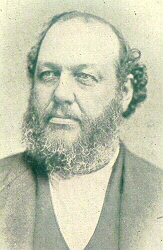
JAMES E. CROFT, deceased, was born in Christian County, January 19, 1839, a son of William G. and Mary E. (McKinney) Croft, the former a native of South Carolina, born in 1807, and the latter of Illinois, born in 1814. His grandfather came, with his family, to Christian County, and carried on the hatter’s trade, which he had learned in England. He became an extensive farmer, in the northern part of the county. James E. Croft was reared on the farm, was educated in the Castleberry School, and taught school two years, and then started a country store. In 1868 he laid out the town of Crofton, when the railroad ran through his property, and became the new town’s leading citizen, until his death, October, 1900. He was married, October 2, 1862, to Elmira E. Bourland. Their union was blessed by four children,
viz.: Delia Croft, married John Keith, and is now deceased; unarne Croft married R. W. Trotter, and now lives at Crofton; J. Mack Croft also lives in Crofton.

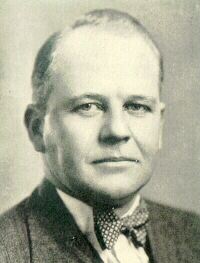
REX A. CROFT, Circuit Court Clerk of Christian County, was elected as a Republican in 1928 for a term of six years, and is filling the office with entire satisfaction to the public, and with credit to himself. He is not only efficient in his duties, but is uniformly courteous and accommodating in the discharge of his duties. He is a native son of Christian County, having been born near Crofton, November 10, 1892, a scion of an old and prominent family. His parents were W. Bradley and Lelia (Long) Croft, and his paternal grandparents were Larkin and Victoria (Armstrong) Croft. His mother’s parents were Riley and Lucy (Cotton) Long. Mr. Croft began his business career as a merchant when he was only twenty years of age, in Crofton, and did a successful business for fifteen years. In 1928, he was nominated by the Republican party for the position he now holds, and was elected, the only Republican to win in the hotly contested election. His term is for six years. Mr. Croft married Miss Ruth Gray, of Crofton, a daughter of C. M. Gray, and they have one child, Rachel Gray Croft. Mr. Croft is a Mason, an Odd Fellow, a member of the Kiwanis Club and of the Christian Church. He was superintendent of the Sunday school of his church for two years, and teacher of the boys’ class for four years. He still retains a position as assistant superintendent. Mr. Croft is active in civil, religious and moral affairs. He is a leader in social activities, and exerts wide influence in the Republican party, not only locally, but in the state and wider fields. His personal popularity is attested by the fact that he has never been defeated in his political aspirations.

ANDERSON BRADLEY CROFT was born near the present town of Crofton, February 8, 1832, the second of the six children of William G. and Elizabeth (McKinney) Croft, who were early settlers in that part of the county. The elder Croft was born in England, and after a stay of some years in South Carolina, came to the new state. His father died in April, 1872, aged sixty-five years. In 1874, Mr. Croft removed from his farm near by to the town of Crofton, and engaged in merchandising with his brother for many years, acquiring, in the meantime, a thousand acres of land. In 1904 he organized the Bank of Crofton, and became its first president. He was married in 1874 to Marcella Campbell. They had one child, Mrs. J. E. Williams, now living at Crofton.



WILL E. CAMPBELL is a son of Charles L. and Sallie (Green) Campbell. His grandfather was Col. William Campbell, a brother of John P. Campbell, whose biography is in this book. His father was a brave Confederate soldier. He had three sons, Warner, an engineer, who was killed on the Denver & Rio Grande Railroad; Will and Harry, both of Hopkinsville. Will was born August 25, 1866, and in his youth was a member of Company D, Kentucky State Guards, for several years. He was a mailclerk in the Hopkinsville post office for seven years, a railway mail clerk for five years, and has filled other responsible positions, and also followed the trade of a machinist. He is quite a genius in certain kinds of woodwork, one of his most skillful fads being the making of pipes from briar-root and hickory. Some of the Presidents and many Governors and other distinguished men have been presented with pipes by Mr. Campbell. He has a host of friends who appreciate his worth as a citizen.

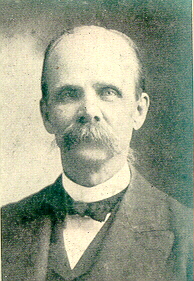
He was throughout his life a prominent Republican leader, but was honored and esteemed by his fellow citizens of all parties.
He was married, December 20, 1876, to Miss Elvira A. Boales, a daughter of Augustus and Sidney (Roberts) Boales. She was born April 11, 1847. To them were born four children: the first two died in infancy; a son, Charles Polk Cansler, has lived in Enid, Okia., for many years and is a prominent and successful business man. A daughter, Maude, is now Mrs. George W. Koenig, of Chicago.


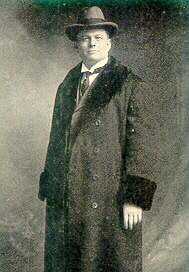
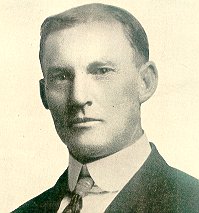
D. D. CAYCE, 1866-1927
DELBERT D. CAYCE, founder of the Cayce-Yost Company, was descended from William Cayce, a Virginia pioneer, who was his grandfather. His parents were Thomas J. and Sarah P. (Thomas) Cayce. His mother was a daughter of Thomas Thomas, of Tennessee.
D. D. Cayce was born in Christian County, December 11,
1866, and died April 6, 1927. He married Rebecca Diliman, December 5, 1887.
She was a daughter of Henry and Elizabeth (Coombs) Dillman. To them were
born the following children: Kenneth 0. Cayce, Bertha (Mrs. Joe F. Poynor),
Delbert D. Cayce, Jr., J. Gordon Cayce, and Elizabeth (Mrs. Wesley P. Dalton).
Mr. Cayce was President and Manager of the Cayce-Yost Company, a director
of the Bank of Hopkinsville, director of the Hopkinsville Building &
Loan Association, and was an officer in the Ninth Street Christian Church,
of which he was a member. He was a farmer, near Beverly, until 1901, when
he moved to Hopkinsville and in 1907 organized the present Cayce-Yost Company,
now a general hardware, paint, seed and farmers’ supply store. H. A. Yost
was a partner in its organization. The extensive business he built up is
now carried on by his sons.
Kenneth 0. Cayce married Kate B. Quarles, a daughter
of Fi ‘ik M. and Josie Rabold Quarles, and they are the parents of three
boys: Frank Quarles Cayce, Kenneth 0. Cayce, Jr., and P. D. Cayce III.
Delbert D. Cayce, Jr., married Emelia Frankel. a daughter of Henry M. Frankel,
and they have one child, Dorothy B. Cayce. Mrs. Wesley Dalton’s children
are Betty Dalton and Wesley, Jr. . He was married, July 28, 1891,
to Miss Mattie McKnight, who died October 12, 1915. He was then married,
December 20, 1916, to Miss Bertha Jones, a daughter of T. A. and Lee Whitlock
Jones, of South Christian. They have two sons, Lucian M. Cayce, Jr., aged
twelve years, and Thomas Whitlock Cayce, aged seven years. Though elected
on a non-partisan ticket, Mayor Cayce is a life-long Democrat. He is a
member of the Christian Church.



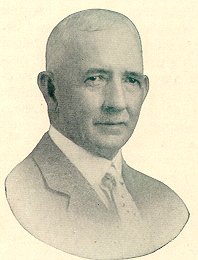
CLAUDE RASCOE CLARK, Hopkinsville merchant, business executive and political leader, was born March 12, 1870, at Belleview, Christian County. He obtained the principal part of his education at “Black Jack Academy,” in Christian County, and attended South Kentucky College in 1884-1885. Mr. Clark, who has been active in the affairs of the Republican party from the time he first went to Hopkinsville, has progressed steadily in the business world, having been actively engaged in the wholesale and retail grocery business, dealing with farmers in the seven counties adjoining Christian from 1886 to 1922. Until the Dark Tobacco Growers’ Co-operative Association closed its business, January 1, 1930, Mr. Clark had been several years previous director of warehouses for that big corporation, and was strongly endorsed by its seventy thousand members for a place on the Federal Farm Board, organized in 1929. Mr. Clark was elected circuit court clerk of Christian County and served twelve years from 1904. He was the nominee for county judge in 1929, but his party was unsuccessful in the election. At the beginning of the present year, he re-entered mercantile life in Hopkinsville.
Mr. Clark is a descendant of one of the county’s oldest families, being a grandson of Joab Clark, whose biography is in this book. . His parents were Hon. H. B. Clark, who represented the county in the General Assembly, and Ellen Cox, a daughter of Elijah Cox. Claude was one of their several sons. He went to Hopkinsville while still a boy and entered the grocery business. He soon became known as “The Boy Grocer,” and was the first grocer in the city to become a regular advertiser in the papers, and his business in time grew to wholesale proportions. He was married, July 17, 1889, to Miss Ethel Braden, a daughter of James P. and Fannie (Means) Braden. Mr. Braden was a banker and a Confederate soldier. Mrs. Braden is still living with her daughter. To Mr. and Mrs. Clark were born Mary S. (now Mrs. Clarence B. Rogers, of Pittsburgh), and Miss Lena Clark. Mr. Clark has been Exalted Ruler of the local Lodge of Elks and state president of the Travelers Protective Association. He is a fine speaker and is known far and wide as an orator.

THOMAS COLEMAN CLARK was born on a farm, near Trenton, Todd County, Kentucky, September 26, 1867. He was born on the farm where his grandparents, Thomas and Catherine (Thompson) Clark settled in 1814, coming from Orange County, Virginia. His maternal grandparents were Charles and Susan Hopson Shepherd, James Clark, his great-grandfather, was in the 8th Regiment (Georgia) in the Revolution. His five sons came to Christian and Todd counties. They were James, John, Thomas, Ambrose and Harry. Subject’s parents moved to a farm near Fairview in Christian County when he was a small boy, and there he grew to manhood. In 1892, he came to Hopkinsville, and went into the live stock business, trading in horses and mules on a large scale, until 1921. He has engaged in other lines of business, since horses have been in less demand, and at the present time is license inspector for the city of Hopkinsville. In 1894, Mr. Clark married Miss Georgia Clark. They have one son, Thomas Coleman Clark, Jr. Subject’s father, Owen A. Clark, was a Confederate soldier in Capt. H. C. Leavell’s First Kentucky Cavalry. This regiment was under Gen. Ben Hardin Helm. Mr. Clark is a Baptist in belief, and in politics is a Democrat. He has been prominent in the affairs of his party in Hopkinsville for a good many years, and has a large personal following.

WILLIAM DAVIDSON COOPER is descended from two prominent pioneer families of LaFayette, Ky. His parents were R. J. Cooper and Lucy Ragsdale Cooper. His mother’s parents were William J. and Emily J. (Tillotson) Ragsdale, natives of North Carolina, who came first to Tennessee, and later to Trigg County, where Mr. Ragsdale died in 1853, and his wife in 1868. Mrs. Cooper was the second of their seven children. W. D. Cooper was born at LaFayette, where his father was a merchant. He came to Hopkinsville when a young man to work in a store, but twenty-five or more years ago he entered the tobacco business and has made it his life-work. At present he is manager of the Hancock-Cooper Loose Floor, the largest warehouse in the city. Mr. Cooper married Miss Bessie Dick, a granddaughter of J. K. Gant, a leading citizen of Hopkinsville. They have two children. Robert J. Cooper twice volunteered in the World War. He entered the army and was discharged upon developing a disease of the mouth. He came home, recovered and enlisted in the navy, and served on the Lakes. He is a rarely gifted violinist and now lives in Chicago. He has one child, Robert J., Jr. The other child, Miss Elizabeth Cooper, married Jesse L. Harton, a prominent young insurance man of Hopkinsville. Mr. Cooper is a Democrat, and has for eighteen years been a steward in the Methodist Church.

LUCIAN CLAY CRAVENS is one of the citizens of Christian County, who is a grandson of one of the pioneers of covered-wagon days. His parents were Richard and Rebecca (Darnell) Cravens. His grandparents on his. father’s side were Elijah Cravens and Esther Palmer. The original pioneer of the family, from North Carolina, reached Christian County in 1796, and camped at the Rock Spring, the present site of Hopkinsville, hunting unclaimed land to be staked out. His oxen were turned out to graze for the night. The next morning, he found that Bartholomew T. Wood had preceded him, and he resumed his journey westward, and finally located a claim ten miles out on the present Julian Pike, the present Prince Hill farm of G. H. Stowe. His children, some of them grown sons, were with him. The elder Cravens was taken ill the next year, and died, that being the year the county was created. His surviving children were Elijah, who surveyed the road later opened to Eddyville; William, who served on the first grand jury, married a Combs; Robert, who married a Gray; Abe, who married a Moore; George and two daughters, who married, one a Duncan and the other a Means. Elijah’s children were Richard, William, Lycurgus, James, and Mary, who married J. T. Ricketts. The mother, Esther Palmer, was born in Virginia in 1801, and came with her parents in 1812. Lucian C. Cravens was born August 13, 1848, and married Belle, a daughter of his uncle, William Cravens, who died in 1903, survived by two children, Ernest, who married Mary Feagan, and Frances, who married R. S. Castle, of Chicago. The Castles have one son, R. S. Castle, Jr. Ernest Cravens was a soldier in the World War, serving eighteen months. Subject was a deputy sheriff of Christian County sixteen years, and tax collector of Hopkinsville seven years. He was a deputy sheriff in 1907, and led the posse in pursuit of the “Night Riders,” who burned warehouses in Hopkinsville in December of that year. When not filling official positions, Mr. Cravens was a farmer near the city. He had one sister, Molly, who married R. E. Cox, and died in 1886, and one brother, J. M. Cravens, who died in 1906. Mr. Cravens is a life-long member of the Christian Church and a staunch Democrat.

WILLIAM J. CHILES, of Christian County, Kentucky, was born August 8, 1864, a son of Dr. Fleming and Saluda (Moseley) Chiles. He married Miss Mary L. Radford, a member of one of the oldest and most noted families of pioneers, who came from Virginia and whose ancestry dates back to a settler at Jamestown. Her parents were Charles Joseph and Ann W. (Leave!!) Radford. Rer grandparents were James Agee and Ann Pettus (Tandy) Radford. James A. Radford’s parents were Benjamin and Nancy (Agee) Radford. Benjamin Radford’s father was William Radford, and William’s father was Benjamin Radford, an original settler at Jamestown, Va. The family was of English and Welsh descent. Mrs. Chiles, on her maternal side, is a descendant of the distinguished Leavell family. Her mother was a daughter of Dr. S. J. and Martha Battle (Dortch) Leavell. Dr. 5. J. Leavell was a son of Lewis Livingston and Frances (Bell) Leavell. L. L. Leavell was an early Virginia pioneer. His grandfather was Benj. Leave!!. Mrs. W. J. Chiles was born in Christian County in 1867, and was married March 28, 1888, and is the mother of four children: William F. Chiles, Annie Laurie, wife of Mr. Bowling S. Wood, a great-grandson of Hopkinsville’s earliest settler; James Agee Chiles, who married Ruth Major Fuzzell and has three children, Annie Laurie, Susan Francis and James Agee, Jr.; and Mary Frances (Mrs. V. 0. Lothman). W. J. Chiles has been a traveling salesman most of his past life, excepting several years he spent in the U. S. Revenue service, and later was steward of the Western State Hospital. Now district superintendent for Kentucky Children’s Home, at Lyndon, Ky. He is a staunch and influential Democrat, and a member of the Baptist Church.


FLEMING C. CLARDY, son of the late Congressman John Daniel Clardy and his wife, Ann F. Bacon. His father began life as a physician, but while called Dr. Clardy, retired from practice early and became a planter on a large scale. Dr. Clardy’s parents were John C. and Elizabeth Cayce Clardy. Mrs. Clardy’s were Fielding and Sicily (Radlord) Bacon. Sicily Radford was a daughter of Benjamin Radford. Subject’s great-grandfather, Mr. Cayce, married a daughter of Lemuel Atkinson, an Englishman, who married Mary Ann Taylor, a sister of Zachary Taylor, and a sister of William Henry Harrison’s mother. F. C. Clardy was born December 10, 1860, at Blandville, Ky., and was married to Mary Elizabeth Moore, a daughter of Benjamin David and Alice (West) Moore. Her grandparents were James W. and Mary (Harrison) Moore. Her great-grandfather, Captain Benjamin Moore, was from Virginia, and died in Christian County in 1834, aged seventy-two years. He served in the Revolutionary War. His wife was Sarah Jones. James W. Moore, their son, was born in Buckingham County, Virginia, in 1806, and came to Kentucky in 1816. He married Mary Harrison, of Montgomery County, Tenn., in 1832. Their four children were Ben P., James C., Mary (Montgomery) and William H. Moore. She was a descendant of William Henry Harrison. Mrs. Clardy was born in Christian County, Kentucky, in 1867. To Mr. and Mrs. F. C. Clardy were born three children: Anne Bacon, John M., Fleming C., Jr. Anne married William Johnson and has two children:
William and Harry C.; Fleming C. Jr., married Louise Logan, and two children have been born to them, Betty Florence and Fleming III.
The Clardys are of French origin and the Moores are Scotch-Irish. Mrs. Clardy’s mother, Alice West, was a daughter of John and Susan (Glass) West. Her maternal grandparents were Claiborne Dandridge West, born in Virginia in 1759, and Elizabeth Woodson. He came to Kentucky in 1815, died in 1822, in Christian County, aged sixty-three; was a descendant of John West, Governor of Virginia in 1635, whose father, Thomas West, married Anne, a daughter of Sir Francis Knollys, Knight of the Garter. F. C. Clardy and his family live on a portion of Dr. Clardy’s landed estate, near Newstead. The family is one of the most prominent in the county, connected by ties of blood with several other equally prominent pioneer families. The Clardys are Baptists and Democrats.

CLARDY. In a statement. made by Mrs. Elizabeth
(Cayce) Clardy, mother of the late Dr. John P. Clardy, some years before
her death, she gave this information of the family history:
She said she knew but little of her father’s parents
except that his father was probably French and his mother of Scotch descent.
They lived in Cumberland County, Virginia, and Mr. Cayce was a gunsmith,
who made guns for the patriot army, working eighteen hours a day. His first
wife was a widow, Mrs. Fowler, who died leaving .him three children, Fleming
Cayce and a sister, Mrs. England. He had become wealthy and married again.
Miss Atkinson, his second wife, Mrs. Clardy’s mother, was a daughter of
Lemuel Atkinson, an Englishman, who married Mary Ann Taylor, a sister of
President Zachary Taylor, and a sister to President Wm. H. Harrison’s mother.
Her father, the gunmaker, died February 11, 1818, aged sixty-four. Her
mother moved to Tennessee, where some relatives had gone, arriving in Smith
County April 15, 1821. She died of apoplexy, September 21, 1823. Her children
were four daughters: Susan married Price Martin; Sallie, William Cayce;
Mary Ann, Blunt Sessums; Elizabeth married John C. Clardy. The Clardys
are of French origin, who came first to Florida or South Carolina and thence
to North Carolina and Virginia. My husband’s mother was Elizabeth Collins.
She had four sons and four daughters. All died young excepting John and
William. “I was born in Virginia, September 3, 1804; married John C. Clardy,
January 3, 1822; baptized by John Wiseman, December 10, 1826, joining Dixon
Creek Baptist Church.” Mrs. Clardy died February 19, 1898, aged ninety-four
years.

SIMEON LEWIS COWHERD, sheriff of Christian County from 1926 to 1930, came to the county twenty years ago from Hart County, Kentucky, where he was born, November 6, 1871, a son of Archie L. and Lucy (Mclnteer) Cowherd. His grandparents were James and Katie Cowherd, and his maternal grandparents were William and Peggy Mclnteer. Both the Cowherd and Mclnteer families were prominent in Hart County, where Mr. Cowherd grew to manhood. Mr. Cowherd was married to Miss Rosa Waggener, and to them were born three children: Lucille, Luther L. and Graham B. Cowherd. Mr. Cowherd came to Christian County seeking a larger field of action, and bought one of the finest farms in the county, and began farming and breeding livestock on a large scale, also dealing in livestock of all kinds. After some years he sold his farm and moved to Hopkinsville and enlarged his livestock business, forming the firm of Cowherd & Altsheler, with a big barn on First Street. In 1925 he was nominated for sheriff, on the Democratic ticket, though not a candidate, and. helped to secure a victory for the whole ticket, and served with much credit. He was not eligible for re-election, and was urged to run for county judge and also mayor of Hopkinsville, but declined, and resumed his livestock business. Mr. Cowherd is a member of and a deacon in the First Baptist Church, and a leader in Sunday school work. He is chairman of the Board of Directors, Christian County Farm Bureau, director of the Board of Directors of the Chamber of Commerce of Hopkinsville; president of the Board of Directors of the Foundation Fund of the city of Hopkinsville, He lives with his family in a beautiful house on South Virginia Street.

MARCUS BRUTUS CAVANAUGH, son of Byrd B. Cavanaugh and Mary Ann (McCulloch) Cavanaugh, was born in Hopkinsville, October 19, 1843. His pioneer ancestor, J. M. McCulloch, came from Ireland to the United States and settled on the Greenville Road, about ten miles from Hopkinsville, and was a tailor by trade. Subject’s paternal grandfather was William M. Cavanaugh, of South Carolina. His maternal grandparents were J. M. McCulloch and Jane (Rowan) McCulloch. At eighteen years of age, he entered Company H, First Kentucky Cavalry, under Capt. H. C. Leavell, October 8, 1861, at Pembroke. During the war, his horse was shot from under him. He was known by the nick-name of “Dixie” Cavanaugh. On January 22, 1867, he was married to Miss Almeda McClendon. They were the parents of eleven children, one of whom died in infancy. They were Belle, Lillian, Edna R. and Jeb (twins), Ida, Cornelia, Mary V., N. L., M. P., and William B. Mr. Cavanaugh has always been a farmer, and has been a member of the Christian Church since before the war between the States, having joined at Concord Church, on the Julian Road.

EDWARD CURTIS is one of the older citizens of Hopkinsville, but is not a native of Christian County. He was born in a foreign land and came to the county because he preferred to. He was born in London, England, December 23, 1863, and grew to manhood in that city, where he married Miss Amelia Pickford. In a little while he left his young wife in England and came to America seeking a home. It was at a time when Christian County was making an effort to get such citizens as Mr. Curtis, and he was induced to come here as manager of one of the first herds of dairy cattle in the county. He sent back for his wife, who soon joined him, and they have been naturalized American citizens for forty years. Being industrious and thrifty, Mr. Curtis soon drifted into mercantile business, first in the grocery store of one of the leading grocers of Hopkinsville, and for the last twenty years in business for himself. He is one of the successful merchants in his line, who has established a business that is still growing from year to year. He has a family of half a dozen native-born Kentuckians, all of whom now are married. His daughters are Mrs. Annie Saunders, Mrs. Amelia Lyle, Mrs. Mary Beitrich, and Mrs. Alice Marschat. His two sons, Edward Curtis, Jr., and Walter 0. Curtis, are, like their father, in the grocery business. Edward married Miss Robinson and is in business with his father. Walter married Miss Wiley and travels for a packing house in Chicago, after several years in the retail business.

IRA FLETCHER CAMPBELL, at present a retired insurance man, living in Louisville, Ky., is a native son of Hopkinsville, born December 7, 1872. He was one of the several sons of Dr. Alexander P. Campbell and his wife, Fannie Martha Ellis. Dr. Campbell’s parents were George and Rebecca Campbell, and those of his wife were Ira Ellis and Martha (Smith) Ellis. Both families were pioneer stock of a hundred years ago. Mr. Campbell’s father was a prominent dentist. His sons were reared according to the tenets of the Methodist Church, given liberal educations, and went forth into the world to be the architects of their own fortunes. Fletcher was first employed as a bookkeeper, and made a good one for twelve years. He then embarked in the insurance business, and rapidly rose to prominence. He spent twenty-eight years in this business; seven years as agent of the New York Life, fifteen years with the Reliance Life Insurance Company, of Pittsburgh, in Kentucky, and, on account of his health, retired six years ago from active work. Mr. Campbell has never married.



Thomas Edgar, October 12, 1892; Everett, October 16, 1894; James Herschel, October 11, 1896; Omar, March 18, 1899. Mrs. Capps died in 1901, and in 1903 Mr. Capps married Ida Cline, and to them have been born Elza, wife of J. R. Messimore, who has a son, Lavera; Erba, Lura and Amanel, who are students in the city schools. Two of his sons were World War soldiers. Everett served overseas in an infantry unit and remained in all two years. Herschel was in the artillery, but did not go to France. Mr. Capps has been a farmer all of his life, except four years as jailer, from 1926 to 1930, elected as a Democrat. He is a member of the Christian Church, and is an influential leader in his party.
